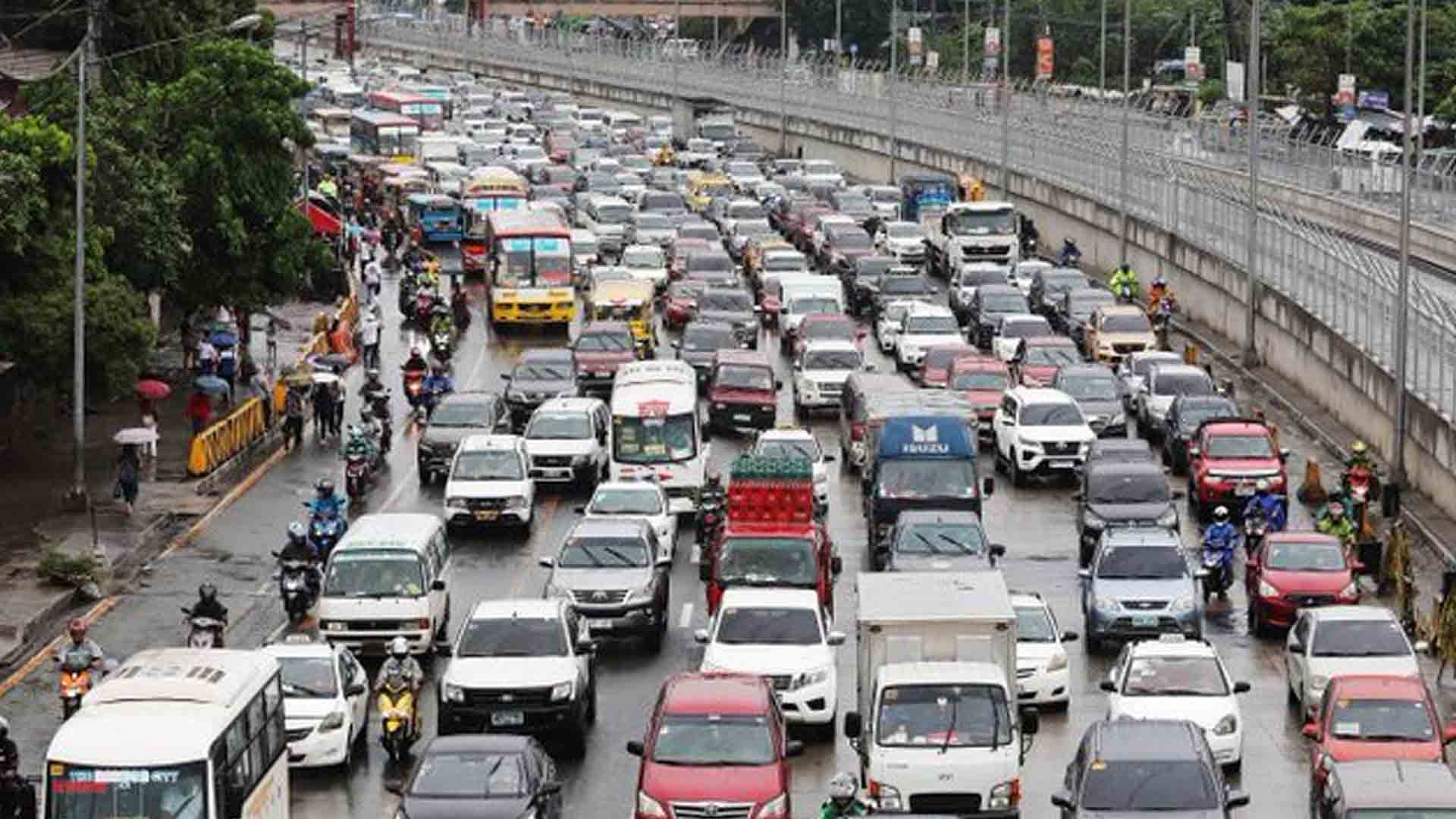A party-list lawmaker on Friday pushed for the creation of a National Traffic Enforcement and Management Center or “Traffic Center” as the chief agency in charge of traffic management.
1 RIDER Rep. Ramon Rodrigo Gutierrez filed House Bill 3410, which would provide a framework for a unified and centralized approach to traffic enforcement, including the formulation and approval of the No Contact Apprehension Policy.
Gutierrez pointed out that the problem of traffic warrants a body dedicated to traffic, and not merely an adjunct of the other bodies.
He said the proposed traffic center would be national in scope and would supersede other jurisdictional traffic bodies, such as the Metro Manila Development Authority (MMDA) and the local government unit (LGU) enforcement arms, as well as unify their enforcement powers under one body.
“Under such proposed structure, traffic offense would be considered universal in scope and application,” Gutierrez said.
He said the Traffic Center would distinguish itself from other bodies, such as the Land Transportation Office (LTO) and Land Transportation Franchising and Regulatory Board (LTFRB), as it would be the primary agency involved with traffic policy, regulation, and enforcement, unlike the LTO and LTFRB which are involved in registration issues.
One of the salient features of the bill is Section 15 which outlines the principles of a “No Contact Apprehension Policy.”
Gutierrez said the policy would be governed by the right to due process and equal protection of laws.
The policy, he said, would also be required to undergo a dry run of at least one year in a covered area under the Traffic Center’s supervision.
Other regulations for the no contact apprehension policy include the following: all road markings and signages of a covered area would be clear and comprehensible; prompt notification of an alleged violation to the concerned motorist within 24 hours of the incident; easily accessible means to update a person’s contact and registration details; in case of contested apprehension, the adjudication would be handled by the Traffic Board Adjudication Board.
The Traffic Center would be attached to the Department of Transportation for policy and program coordination.
To effectively carry out its tasks, the Traffic Center would issue a centralized list of traffic rules and offenses, as well as train all traffic officers and personnel in traffic enforcement, management, and a proper investigation of accidents.
In a privilege speech on Tuesday, Surigao del Norte Rep. Robert Ace Barbers sought an inquiry into MMDA’s no-contact apprehension policy (NCAP) due to the “enormous” traffic fines imposed even for minor violations.
Barbers made the call after receiving reports and complaints from motorists who are penalized with enormous fees “without due process of law”.
He noted that while the intent of NCAP to discipline erring drivers is laudable, the public should be enlightened about the details of its implementation to curb or stop abuses by the implementors.
Under the NCAP system, the MMDA or local government units concerned issue notices or citation and mail them directly to the vehicles’ registered owners. Non-payment of dues or fines for a specific period of seven days meant that violators’ vehicles would not be accommodated for re-registration.
Barbers said the NCAP could become an additional burden for motorists and a source of corruption institutionalized by the state.
“This NCAP system is laudable since the intent is to discipline erring, abusive or wayward drivers. But the implementors, I was told, are imposing excessive fines and could be violating the Constitution since there is no due process of law. Likewise, there is no law, ordinance, or regulation prohibiting vehicle registration due to non-payment of fines for traffic violations,” Barbers said.
He noted the possibility of overlapping implementation, in which an erring driver could be penalized twice for the same offense by the different implementors.
Barbers said if the MMDA would be the only forum where these erring drivers caught on NCAP CCTV monitors can file grievances, complaints, and protests, then the agency would then virtually become “the accuser, judge, and executioner.”
The MMDA, meanwhile, welcomed the call for a legislative investigation into the controversial policy, assuring its cooperation with other branches of the government and agencies to “ensure a more efficient and orderly implementation” of the NCAP.
It said the recent call of the Land Transportation Office (LTO) to suspend the NCAP was addressed to LGUs who have autonomy in “crafting and implementing their own traffic regulations.”
“From what we heard, LTO’s call for LGUs to suspend their respective NCAP is their reaction to the call of some transport groups and operators on the issue,” it said. (PNA)






